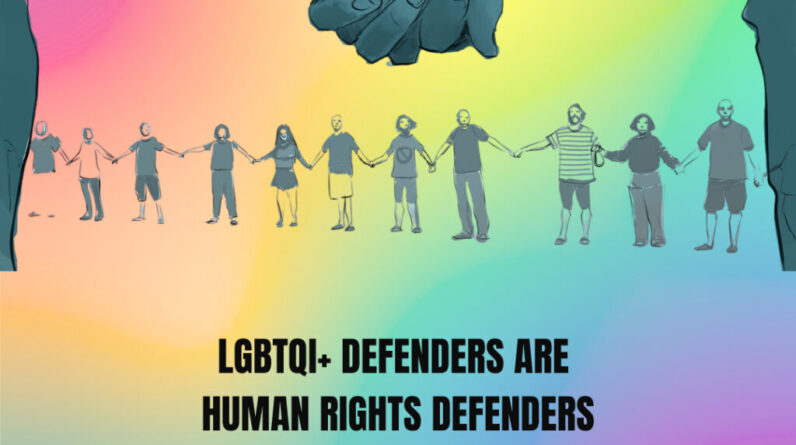
International Day of Neutrality is observed on December 12th to promote the importance of maintaining neutrality in international relations for conflict prevention and resolution. Neutrality in international relations is crucial in preventing and resolving conflicts.
It ensures that countries refrain from taking sides in disputes, remaining impartial and effectively contributing to peaceful negotiations. On December 12th, the International Day of Neutrality serves as a reminder of the significance of neutrality in maintaining international peace and security.
Countries that adopt a neutral stance play a crucial role as mediators and facilitators in achieving peaceful resolutions, fostering dialogue, and preventing the escalation of conflicts. This day aims to raise awareness about the principles of neutrality and the importance of upholding it in international relations. It highlights the need for impartiality and non-interference as fundamental pillars for promoting peace and stability globally.
Overview Of International Day Of Neutrality
International Day of Neutrality is observed annually on December 12th, established by the United Nations General Assembly in 2017.
Definition And History Of International Day Of Neutrality
Neutrality can be defined as the state of being impartial or not taking sides in a conflict or dispute. The International Day of Neutrality aims to promote the importance of neutrality in international relations.
This day serves as a reminder of the principles outlined in the United Nations Charter, which encourages the peaceful resolution of conflicts and the respect for territorial integrity.
Purpose And Significance Of Observing This Day
The purpose of observing the International Day of Neutrality is to raise awareness about the significance of neutrality in maintaining peace and stability.
By promoting the principles of neutrality, countries can contribute to conflict prevention, uphold human rights, and facilitate peaceful diplomatic resolutions.
Observing this day encourages nations to remain impartial and neutral in conflict, emphasizing the importance of international diplomacy and dialogue.
Promoting Peace Through Neutrality
The International Day of Neutrality is commemorated on December 12th every year to acknowledge the significance of neutrality in promoting peace and resolving international conflicts. Neutrality is a vital principle in conflict resolution and contributes to maintaining stability and preventing further escalations.
Many countries worldwide practice neutrality as a critical aspect of their foreign policy. These countries adopt a non-aligned stance and refrain from participating in military alliances or conflicts. Examples of countries that have historically embraced neutrality include Switzerland, Sweden, and Austria.
Neutrality plays a crucial role in supporting peaceful resolutions. By abstaining from taking sides, neutral countries can act as impartial mediators and facilitate negotiations between conflicting parties. This impartiality fosters trust, encouraging open dialogue and increasing the chances of finding constructive solutions.
In times of armed conflicts, neutrality allows these countries to provide humanitarian aid and assistance to affected areas without being viewed as biased. This ensures that resources reach those in need, ultimately aiding in the recovery and rebuilding process.
| Examples of countries practicing neutrality | How neutrality supports peaceful resolutions |
|---|---|
| Switzerland | Acts as a mediator in diplomatic negotiations. |
| Sweden | Provides humanitarian aid to conflict-affected areas. |
| Austria | Maintains independence in political and military matters. |
International Day of Neutrality serves as a reminder of the importance of neutrality in promoting a peaceful and stable world. Upholding this principle allows countries to contribute positively to peacekeeping efforts, conflict resolution, and humanitarian assistance.
Ensuring Fairness Through Neutrality
The International Day of Neutrality celebrates the significance of impartiality in promoting fairness and justice across various domains. Neutrality acts as a crucial means to maintain a balanced and unbiased approach to resolving conflicts and disputes. By upholding the principles of neutrality, organizations, and nations can ensure that they refrain from favoring or taking sides, fostering an environment of equality and impartiality.
One of the critical benefits of neutrality lies in its role in global governance. It enables nations to participate in international affairs without being influenced by political, economic, or social biases. Neutrality helps a fair distribution of resources and encourages collaboration for peaceful resolutions.
However, maintaining neutrality also poses particular challenges. Striking a balance between objectivity and the need for action requires meticulous decision-making and careful evaluation of various perspectives. Additionally, external pressures and conflicting interests can pose obstacles to achieving impartiality.
In summary, the International Day of Neutrality serves as a reminder of the importance of neutrality in establishing fairness and justice. It emphasizes the need for continuous efforts to maintain a neutral standpoint while navigating the complexities of global affairs.

Credit: www.jomashop.com
Neutrality And Humanitarian Aid
International Day of Neutrality highlights the importance of maintaining impartiality in humanitarian aid efforts. Neutrality ensures that aid is distributed fairly in conflict zones, where resource access is often limited. By remaining neutral, organizations can access all parties involved and assist those in need, regardless of their affiliations.
However, neutral humanitarian interventions face numerous challenges and obstacles that must be addressed. These challenges can include navigating intricate political dynamics, ensuring the safety of staff and beneficiaries, and obtaining consent from conflicting parties for aid delivery. Overcoming these obstacles requires diplomacy, strategic planning, and collaboration between governments, organizations, and local communities.
Neutrality And International Trade
The International Day of Neutrality celebrates the concept of neutrality and its crucial role in facilitating international trade. Neutrality ensures fair treatment and equal opportunities for all nations, fostering an environment conducive to mutually beneficial economic exchanges.
It plays a significant part in promoting economic growth and stability by upholding principles such as non-interference and impartiality. By abstaining from taking sides in conflicts and disputes, neutral countries create an atmosphere of trust and confidence among trading partners, encouraging smoother transactions and greater cooperation.
Neutrality also safeguards against potential biases that could hamper the fairness of international trade, allowing countries to act as reliable intermediaries and mediators when needed. Overall, the observance of the International Day of Neutrality serves as a reminder of the importance of neutrality in sustaining a healthy and prosperous global trading system.
Neutrality In The Digital Age
With the proliferation of the digital age, neutrality has found new dimensions and implications in cyberspace. The International Day of Neutrality serves as a reminder of the challenges and strategies in ensuring a fair and peaceful online environment.
Maintaining neutrality in the internet realm poses various challenges. One challenge is manipulating information, where fake news and biased content can sway public opinion. Another challenge is the control over data, as it can be used to exploit user privacy and influence online experiences.
To ensure fairness and peace online, specific strategies can be employed. Transparency is paramount, where platforms and entities should disclose how they curate content and handle user data.
Net neutrality regulations can be crucial in preventing discriminatory practices and ensuring equal access to information. Additionally, fostering digital literacy among users can empower them to evaluate online content and make informed decisions critically.
Celebrating International Day Of Neutrality
International Day of Neutrality is a significant occasion that aims to raise awareness and promote understanding of the importance of neutrality in global affairs. This day celebrates the practice of impartiality and non-interference in conflicts. It encourages countries and individuals to remain neutral in international disputes and to respect the principles of fairness and non-partisanship.
On this day, various activities and events are held to highlight the significance of neutrality. These include symposiums, workshops, and panel discussions that shed light on the benefits and challenges of maintaining a neutral stance. Organizations and institutions may also organize campaigns to spread awareness about neutrality and its impact on international relations.
By promoting awareness and understanding of neutrality, we can contribute to creating a more peaceful world. Encouraging global participation in observing the International Day of Neutrality allows us to emphasize the importance of neutrality and its role in resolving conflicts peacefully. Together, we can work towards fostering tremendous respect for neutrality and its principles in international affairs.
INTERNATIONAL DAY OF NEUTRALITY DATES
| Year | Date | Day |
|---|---|---|
| 2023 | December 12 | Tuesday |
| 2024 | December 12 | Thursday |
| 2025 | December 12 | Friday |
| 2026 | December 12 | Saturday |
| 2027 | December 12 | Sunday |
Frequently Asked Questions For International Day Of Neutrality
What Is Neutrality In International Law?
Neutrality in international law refers to a country’s impartiality and non-involvement in conflicts between other nations. It prohibits siding with one party, offering assistance, or allowing the use of its territory for warfare. Neutrality ensures peaceful relations and promotes stability among countries.
Why Is Neutrality So Important?
Neutrality is vital because it ensures fairness, impartiality, and unbiased information. It allows for equitable decision-making, avoids favoritism, and promotes trust. Maintaining objectivity promotes transparency, credibility, and a balanced perspective in various contexts, including journalism, research, and conflict resolution.
What Is The Concept Of Neutrality?
Neutrality is the concept of remaining impartial and unbiased in a given situation. It involves avoiding favoritism or taking sides to ensure fair and objective decisions or actions. Being neutral means being objective and not allowing personal preferences or biases to influence judgment.
Conclusion
The International Day of Neutrality promotes peace and stability in our ever-changing world. By embracing neutrality, we can foster dialogue, understanding, and cooperation among nations. This day reminds us of our collective responsibility to uphold neutrality as a guiding principle, ensuring the fair treatment of all parties involved.
Let us continue to embrace neutrality to build bridges and create a harmonious global community.






